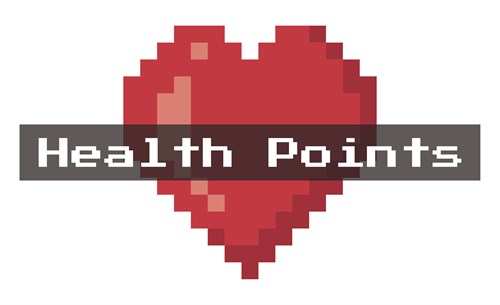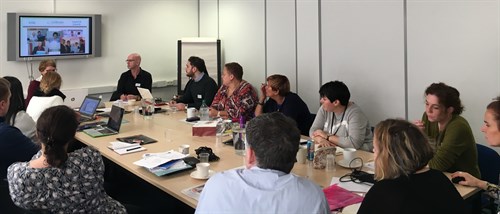 Rinova welcomed a new partnership at its offices on the 30th and 31st January to launch its new ‘Health Points’ project.
Rinova welcomed a new partnership at its offices on the 30th and 31st January to launch its new ‘Health Points’ project.
There is a crucial need to improve health literacy among young adults, especially those who are from disadvantaged contexts. Much ill-health in adulthood has its roots in earlier life, and conditions such as diabetes and obesity can impact negatively on employability as well as life prospects more widely.
Therefore the Health Points project will develop a new, game-based resource to promote health and well-being for tutors and trainers who are working in a variety of educational contexts with young adults.
Health Points is led by Rinova, working with a group of other European partners – die Berater (Austria), BUPNET (Germany), Rogers Foundation (Hungary), MMC (Cyprus) and CESIE (Italy). The project is funded by the Erasmus+ programme under Adult Education as a Strategic Partnership and will run for the next two years. It builds upon previous work undertaken by some of the partners in Health Box and will develop Health Points as an interactive resource, incorporating game-based approaches. As a result, tutors will be able to support young adults to undertake their own journeys and discoveries with health and well-being education.
Alex Walker from Rinova is coordinating the transnational work programme, and will be leading our local work in London. A new website will be set up in the coming weeks to promote the project and updates will be provided regularly through Rinova’s social media channels.
We plan to consult with tutors and young adults about our plans – and there will also be opportunities to get more involved later in the year. In the meantime, if you would like to register an interest in getting involved, contact Alex at a.walker@rinova.co.uk.

Pictured above: The Health Points partners get down to business at their first meeting at Rinova on the 30th January.

The European Commission support for the production of this communication does not constitute an endorsement of the contents which reflects the views only of the authors, and the Commission cannot be held responsible for any use which may be made of the information contained therein.


